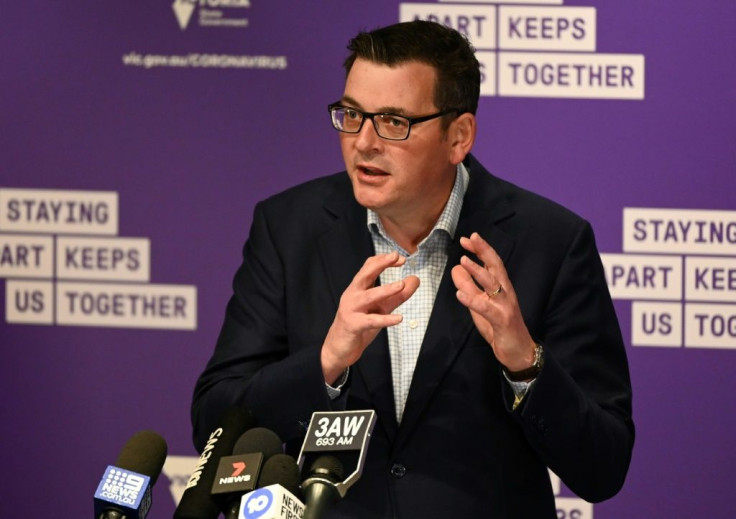Australia Coronavirus Update: Victoria Announces 'State Of Disaster', Imposes Further Restrictions
KEY POINTS
- The Australian state of Victoria declared a state of disaster Sunday to quell the spread of COVID-19
- The declaration includes a curfew and harsh movement restrictions limiting travel to within 5 kilometers
- Restrictions in and around Melbourne expected to remain in place through mid-September
The Australian state of Victoria declared a state of disaster Sunday, including strict curfews and travel restrictions, in a desperate move to curb the rapid spread of COVID-19 among its 6.6 million residents.
The announcement was made by Victoria premier Daniel Andrews after the state, Australia's second most populous, was hit by a record high 671 new infections Saturday.
Andrews said there's an "unacceptably high" number of community transmission cases. He revealed Victoria has 760 active COVID-19 infections whose source of the transmission remains unknown.
"Those mysteries, that community transmission, is in many respects our biggest challenge and the reason why we need to move to a different set of rules," he said.
The state of disaster took effect 6 p.m. Sunday across all of Victoria, which is also concurrently under a state of emergency. The state of disaster restrictions will last until mid-September for the entire state in accordance with the law.
The harshest measures were imposed on the state capital of Melbourne, which is now under stage four restrictions. Melbourne has been coping with strict measures for most of July after it was named the epicenter of Australia's second wave of infections.
Among the restrictions in place in Melbourne now are:
* An evening curfew from 8 p.m. to 5 a.m. every day starting Sunday night. The curfew forbids anyone from leaving their home except to work, or to receive or give care to other persons.
* Only one person from each household is allowed to shop at a time, and only once a day outside of curfew hours to pick-up essential goods. This person must stay within a 5-kilometer radius of his home.
* Exercise outside the home will only be allowed for one hour at a time. Recreational activities like golf and fishing are banned.
* Restaurants and cafes will continue to offer take-out and home delivery.
* Public transportation schedules will be reduced to a fraction of the current numbers.
* People can still visit their intimate partners even if these persons live more than 5 kilometers apart.
* Weddings are banned within Melbourne except on compassionate grounds.
* Rules for funerals will continue to allow 10 mourners plus those conducting the funeral. Leaving home for a funeral will be allowed during the state of disaster.
Andrews earlier placed regional Victoria under stage three restrictions starting midnight Wednesday. Cafes, bars and restaurants must close, and all schools in Victoria will resume online learning.
Victoria's 11,557 confirmed cases account for 65% of Australia's total case count of 17,923. State health authorities revealed seven new deaths Saturday, bringing Victoria's total death toll to 123.

© Copyright IBTimes 2024. All rights reserved.




















